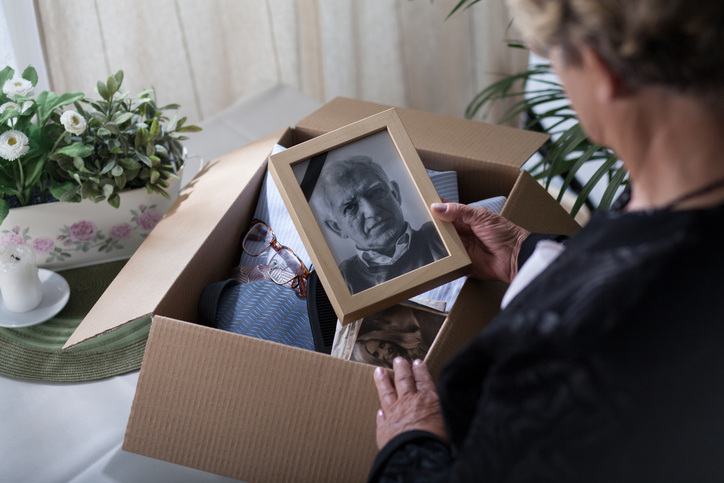The death of a loved one is one of the most difficult experiences that we go through. And although coping with the loss of a loved one is difficult enough, what about the forgotten secondary loss? A secondary loss can mean many things and, like grief, it’s unique to everyone.
Let’s discuss what a secondary loss is, the different types of secondary losses, and how you can cope.
Meaning Behind Secondary Loss
Secondary losses are the other losses that come with losing a loved one. This could be a physical object, a tradition that involved the deceased, or something else. Often, these secondary losses appear over time rather than all at once. Those grieving see them unfold as they realize the impact the death has on their everyday life.
As Jill LaMorie explains in this TAPS article, death has a ripple effect. She shares the example of when you throw a stone in the water and it creates ripples. Death works similarly, as it’s like the stone and the ripples are secondary losses that appear over time.
Types of Secondary Loss
As mentioned above, secondary losses come in many different forms, such as:
Security
- Loss of income
- House — including change of address
- Financial security
- Business
- Feeling safe
- Familiarity
Relationship
- Loss of traditions and activities with the deceased
- Role — spouse, father, mother, sister, brother, friend, caregiver, etc.
- Support system
- Milestones without deceased
- Family structure
- Future together — for example, the loss of a partner or young child
Yourself
- Loss of identity
- Dreams
- Sense of purpose
- Memories
- Faith
- Motivation
Note, this list is just the beginning of the types of secondary losses. Every relationship is unique and has its own losses that come with it when someone passes away.
How to Cope
Secondary losses have a major impact on our lives, but there are healthy ways to cope. One way is to make a special memento to preserve a loved one’s memory. A scrapbook is a great way to capture precious memories with a loved one. Plus, you can pass it down from generation to generation in your family. That way their legacy lives on forever.
Along with honoring their memory, you also should remember to take care of yourself. You can lean on the support of trusted family, friends, or grief professionals. Also, check with your funeral home to see what grief resources, educational seminars, and support groups they have. It’s important to realize grief is unique, so everyone needs to find a healthy grieving method that fits their needs.
Share your tips for coping with secondary losses in the comments below!





A very helpful and informational article. I provide grief and bereavemnet class es for a local funeral home. Th r re are no classes or support groups within an hour and a half travel time. I have a passion in this ministry and am working toward reaching more people experien c ing loss of all types. Secondary lisses are such a big part of the major loss that people do not realize.
Thank you for sharing a most needed article.